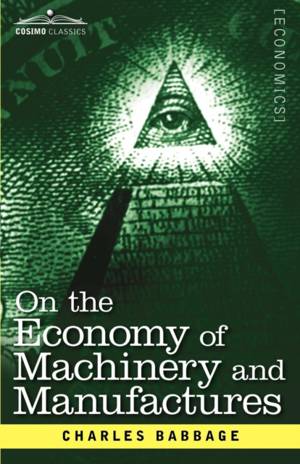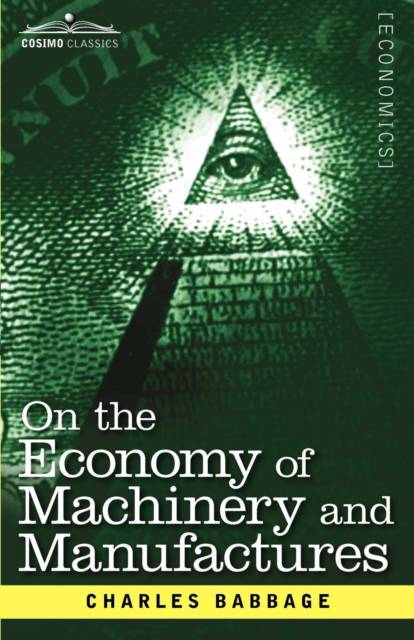
- Afhalen na 1 uur in een winkel met voorraad
- Gratis thuislevering in België vanaf € 30
- Ruim aanbod met 7 miljoen producten
- Afhalen na 1 uur in een winkel met voorraad
- Gratis thuislevering in België vanaf € 30
- Ruim aanbod met 7 miljoen producten
Zoeken
€ 33,95
+ 67 punten
Uitvoering
Omschrijving
On the Economy of Machinery and Manufactures is a treatise on labor economics and how to reduce the cost of workers by dividing tasks based on skill level. In his Preface, Babbage claimed that the work was a direct "consequence" of his supervising the creation of "the Calculating-Engine." To conduct research for the machine, he visited workshops and factories throughout England and Europe and noted their inefficiencies. As a result, he wrote the tract on labor and described what is known as the Babbage Principle-that by only assigning tasks designed for their skill level and pay grade, workers could be more efficient and costs cut. Though criticized by theorists like Karl Marx, the principle is often used today in management styles and workplaces. CHARLES BABBAGE (1791-1871) was a British engineer, inventor, mathematician, and philosopher. He is considered the "father of the computer" for pioneering the concept of a programmable computer and his invention of the first mechanical computer, which he called the "difference engine." Babbage made noteworthy contributions to cryptography, engineering, economics, and the modern postal system in England.
Specificaties
Betrokkenen
- Auteur(s):
- Uitgeverij:
Inhoud
- Aantal bladzijden:
- 338
- Taal:
- Engels
Eigenschappen
- Productcode (EAN):
- 9781616407605
- Verschijningsdatum:
- 1/11/2012
- Uitvoering:
- Paperback
- Formaat:
- Trade paperback (VS)
- Afmetingen:
- 140 mm x 216 mm
- Gewicht:
- 430 g

Alleen bij Standaard Boekhandel
+ 67 punten op je klantenkaart van Standaard Boekhandel
Beoordelingen
We publiceren alleen reviews die voldoen aan de voorwaarden voor reviews. Bekijk onze voorwaarden voor reviews.








